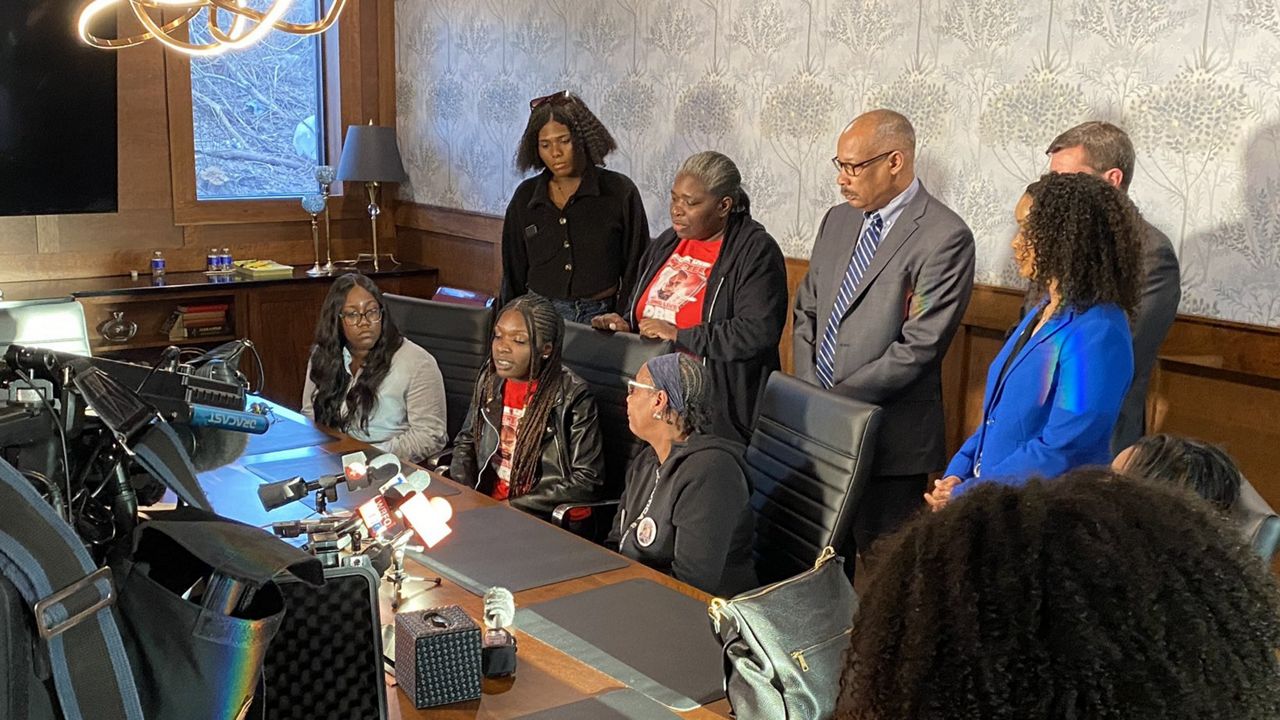BUFFALO, N.Y. — May 14, 2022 — a day that scarred the city of Buffalo and its people, leaving wounds that may never fully heal.
"It seems like a lifetime. It seems like there was no time before 5/14," said Garnell Whitfield Jr. "It’s been very difficult. Probably much more than I can even tell you, because I don’t know that I’ve had sufficient time to grieve."
Whitfield's mother, 86-year-old Ruth Whitfield, was among the 10 Black people killed when a white teenager opened fire at the Tops grocery store on Jefferson Avenue in a rampage allegedly fueled by racial hatred.
"All I can think about is what she might have went through, what she felt, what she thought in that moment," Whitfield said. "I can’t get past that."
Whitefield calls his mother "the hub in the middle of the wheel" for his family — a woman who raised him and his three siblings, who almost daily visited and cared for his father, her husband of 68 years, after he entered a nursing home nine years ago.
"My mother was really the closest thing to God’s love — we believe in God — that I’ve ever experienced. Unconditional, unconditional, non-judgmental, pure," Whitfield said.
Since that horrible tragedy, Whitfield has been outspoken about the need for change in our society. Through his pain, he’s testified before senators pushing for gun safety measures passed last year. He’s spoken to people affected by other mass shootings in our country. But the issues run deeper. He says racism is something people of color like he and his mother deal with every day in America.
"All of those things are undergirded by white supremacy, white nationalism," he said. "This country was founded on it. It’s a part of the fabric of this country, period. It’s a part of our history. It’s the evolution of lynching. It’s a modern-day lynching. That’s what it is. Plain and simple."
Zeneta Everhart is the mother of Zaire Goodman, a Tops employee who survived a gunshot wound during the May 14 attack. While she’s grateful he’s still alive and physically doing well, the emotional scars are something that will stay with him.
"All I ever want to do is just fix everything for him, right? That’s what moms do," she said." But I can’t fix the fact that someone tried to kill him because he’s Black, so that’s going to be a longer road to recovery."
Everhart has made it her mission to educate kids about racism, discrimination and diversity in the country. She started Zeneta and Zaire’s Book Club to make sure children hear about these topics at a young age and history remembers May 14 in Buffalo.
"Kids don’t care about [the] color of skin until they’re told to care about stuff like that, right? Racism is a learned behavior," she said. "I want it to be accurate. I want them to learn about domestic terrorism and define what that is in our country. And I want them to learn that racism is bad. It just is bad and it just shouldn’t happen. That’s what this is about. We have to make sure that we’re accurately telling the story."
And for her, that means topics that might be uncomfortable for some are brought to the forefront and taught in schools.
"My ancestors literally built this country. Our blood is embedded in the soil of this country, so we are a part of this country, so we have to tell our stories," she said. "And we can’t do that in silos where we’re buying books to teach our kids this at home. No, it needs to be in mainstream America."
So how will historians look back on what happened that day? Steve Peraza teaches American and African-American history at SUNY Buffalo State University. He was at the Merriweather Library on Jefferson Ave., down the street from Tops earlier in the day, and fear was his immediate reaction when he heard about the shooting.
"I think that was really the point was to put Black Americans on notice that they weren’t wanted by some people," he said.
Peraza often teaches his college students about past acts of racial terrorism in the South after the Civil War. But he says the events of 5/14 truly hit closer to home.
"Now, we can see even in the North, that racial terrorism operates the same way. This is really to create fear in the African American community and to remind Black Americans symbolically of white supremacy," he said.
Peraza believes when historians research massacres like 5/14, they can tie them to events that happened long ago and look for ways that issues could have been fixed, or could be in the future.
"I think when historians when they’re finding sources and they’re telling stories, we can be a little bit more upfront about wanting our story to shape the present. So I like the idea of finding a problem in the present and seeking its solution in the past," he said.
Peraza added that there are opportunities for Buffalo to be in the national discussions when it comes to this era of race relations in the United States. For Whitfield, that means telling the hard truths and tackling issues like systemic racism, privilege and the power structure of the country.
"I have no doubt that my mother and the other souls lost on 5/14 will go down in history as being a catalyst or the impetus for change," Whitfield said. "I’m going to spend the rest of my life, and I know my family is going to do that too, and I know other families are going to do that too, to make sure that they’re not seen as victims."







